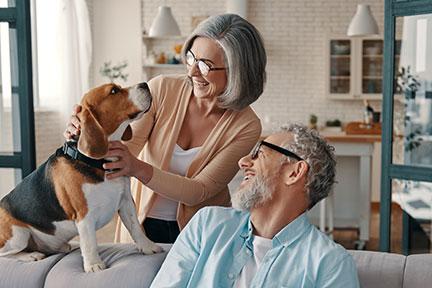
As retirement approaches, many people find they have more time to spend with their pets. This free time allows them to strengthen their bond with their furry friends, who might have suffered during their busy work lives. Adjusting to this new lifestyle means not only enjoying leisurely walks but also focusing on their pets' well-being. You want to ensure they feel loved, cared for, and cherished in your golden years.
It's important to understand what your pets need during this time. They may require additional veterinary check-ups, a tailored diet, or more playtime. Making this time enjoyable for both of you can lead to unforgettable experiences.
Dog Treats
Nothing makes a dog happier than a tasty treat. Dog treats serve many purposes. You can use them for training, as a pick-me-up, or even mix them into your dog's regular meals. Consider making your treats at home using simple ingredients like oats, peanut butter, and pumpkin puree, so your pet enjoys fresh and healthy snacks.
Exploring different store-bought dog treats can be a fun activity. Many brands offer options tailored to specific dietary needs, such as grain-free or low-calorie treats, which are particularly important for older dogs. You can also find chewy treats that help their dental health or supplements for their joints. Giving your pet seasonal snacks can be a fun way to celebrate holidays.
Routine and Exercise
Establishing a routine can enhance your pet's overall happiness and well-being. With more free time after retirement, you can balance exercise, feeding, and play more easily. Consistent feeding times help your pet feel secure, while regular walks keep them fit and strengthen your bond. Make daily activities fun. Try new walking paths, visit parks, or plan dog-friendly outings.
Playing with your pet is just as important as exercising. Toys like puzzle feeders can challenge their minds and keep them entertained. Change their toys regularly to keep things exciting. Consider involving them in your hobbies, such as gardening or painting. This helps include your pet in your life, making every moment richer for both of you.
Moreover, for days when schedules change or extra enrichment is needed, doggy day camp services provide structured play, socialization, and supervised activity. They complement home routines while keeping pets active, engaged, and happy in a safe environment.
Retirement Homes
Retirement homes can be lively communities filled with activities that enhance the lives of both residents and their pets. Many retirement communities will welcome pets because they understand the joy pets bring to their owners.
Living in a pet-friendly retirement home can benefit both you and your pet. Companionship helps fight loneliness and promotes well-being. Shared spaces, such as gardens and walking paths, provide pets with a room to roam, and pet-focused activities can help residents connect, share tips, or organize playdates.
Retirement communities often provide easy access to vets and pet care professionals, helping you keep your pet healthy. Your pet can also socialize with other animals, which exposes them to new experiences.
Health Care and Nutrition
Taking care of your pet's health is very important after they retire. Regular visits to the veterinarian are necessary as pets age. These check-ups can find health problems early, keeping your pet safe and comfortable. Consult with your veterinarian about your pet's changing dietary needs. Older pets often require specialized diets that help them maintain a healthy weight while providing the necessary nutrients.
Choosing good food is just as important as how you feed your pet. Ensure they receive the right balance of proteins, carbohydrates, and fats for their age and activity level. Adding omega fatty acids or other nutrients can help improve their coat health and joint movement.
Mental Stimulation and Enrichment
Keeping your pet's mind active is crucial for their overall happiness, especially as they age. Mental stimulation helps prevent boredom and behaviour problems. You can challenge your pet with activities like puzzle toys, treat-dispensing balls, or interactive games that require problem-solving.
Training sessions are also a good way to engage yourself mentally, especially if you are part of an assisted living program. Teaching them new tricks or practicing basic commands gives them mental exercise and a sense of achievement. You can also play scent games, where your dog finds hidden treats around your home or yard, which they find very rewarding.
